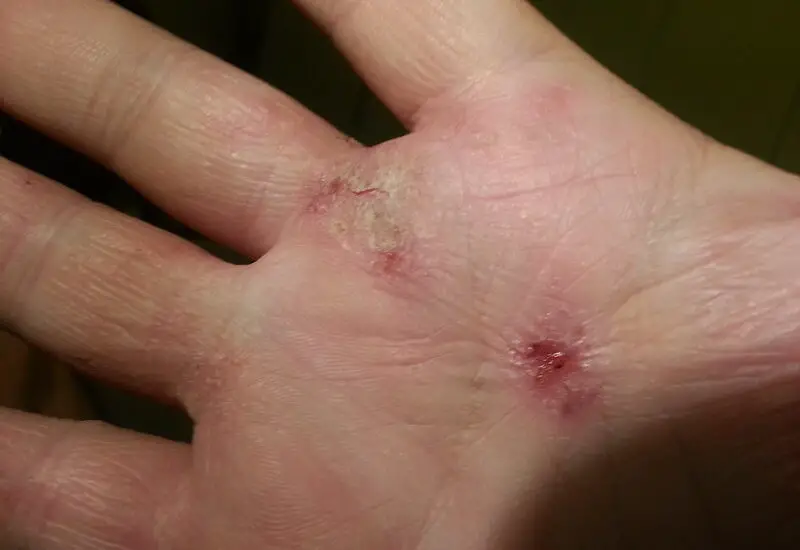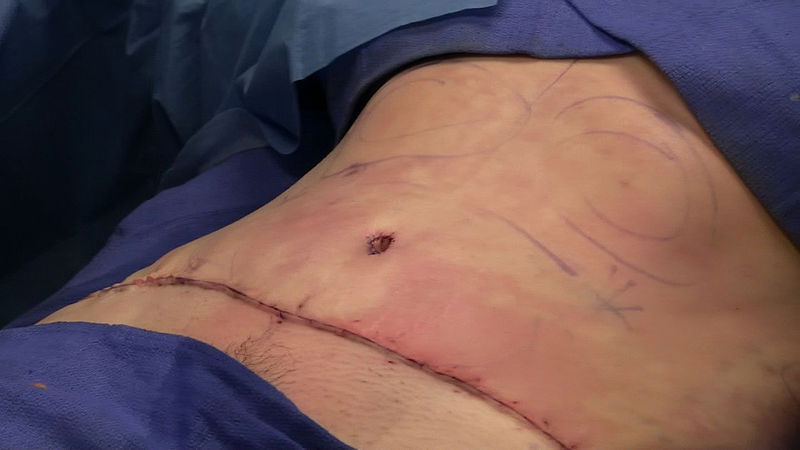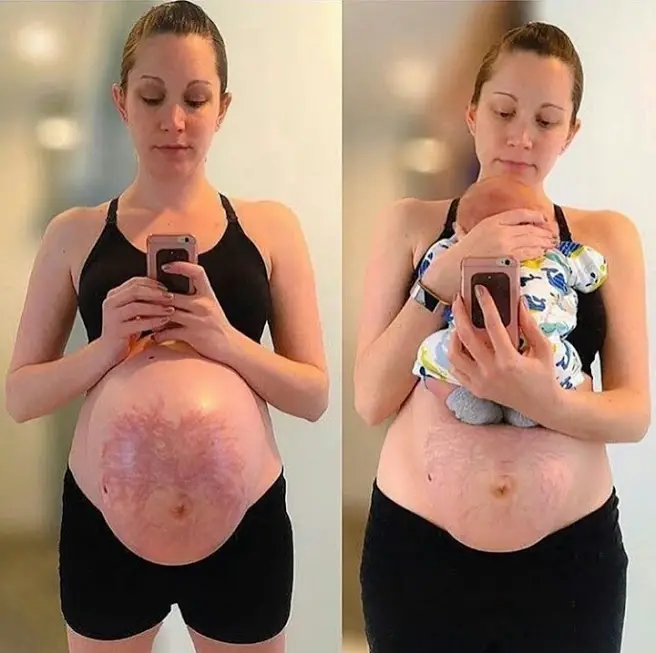If you’re struggling with holes in skin from eczema, you’re likely searching for answers. This article offers a complete guide to understanding the causes and treatments of this specific symptom of eczema.

Table of Contents
What Causes Holes in Skin from Eczema
The appearance of holes in skin from eczema usually occurs due to multiple factors. The primary factors include:
Severe Scratching: The itchiness associated with eczema often leads to scratching, which in turn can cause the skin to break, leaving behind small depressions or ‘holes’ in the skin.
Inflammation: Eczema is an inflammatory skin condition, and chronic inflammation can lead to structural changes in the skin, including the formation of holes.
Secondary Bacterial Infections: The broken skin can become infected, making the condition worse and contributing to the appearance of pitted scars or holes.
According to the Regional Allergy, Asthma & Immunology Center, untreated or poorly managed eczema can result in permanent skin damage, manifesting as holes or pitted scars.
Symptoms to Look Out For
Noticing holes in skin from eczema should prompt immediate attention. These symptoms often indicate a more severe state of eczema:
Red Patches: These are commonly seen in eczema patients and might be a precursor to more serious skin changes like holes.
Itchiness: Almost all eczema patients experience itchiness, but severe itching can lead to scratching and eventual holes in the skin.
Flaking and Peeling: The skin might start to flake or peel off, indicating a worsening condition.
Discharge: In extreme cases, the holes may produce discharge due to secondary bacterial infections.
Diagnosis and Medical Intervention
If you observe any of the aforementioned symptoms, particularly the appearance of holes in skin from eczema, consult a dermatologist as soon as possible. The standard diagnostic process often involves:
Physical Examination: The doctor will usually start by examining the affected areas.
Skin Biopsy: In some cases, a small skin sample may be taken for further analysis.
Based on the diagnosis, the following treatments may be recommended:
Topical Steroids: These can reduce inflammation and may help in skin repair.
Antibiotics: If bacterial infections are identified, antibiotics will be prescribed.
Antihistamines: These help in controlling itching and can prevent further damage from scratching.
More information about the management of eczema can be obtained from the National Eczema Association.
Check out these other related articles…
Bumps on Skin From Eczema: A Comprehensive 411 Guide
Lines on Skin from Eczema: Comprehensive 411 Guide
Red Skin After Eczema: Your Complete Treatment Guide
Can Skin Recover From Eczema: The Ultimate Guide to Healing
Skin Peeling After Eczema Flare Up: Healing or Concern?
Does Skin Discoloration from Eczema Go Away? Detailed Answer
Home Remedies for Managing Holes in Eczema-Affected Skin
It’s crucial to note that while home remedies can offer temporary relief, they are not a replacement for professional medical treatments. However, here are some commonly used home remedies:
Oatmeal Baths: Colloidal oatmeal has anti-inflammatory properties and can help soothe itchy and irritated skin.
Check out this Aveeno Fragrance Free Soothing Bath Treatment listed on Amazon
Aloe Vera Gel: Known for its anti-inflammatory and healing properties, aloe vera gel can be applied topically to affected areas.
Always consult your healthcare provider before starting any home remedies, especially if you are currently undergoing any medical treatments for eczema.


